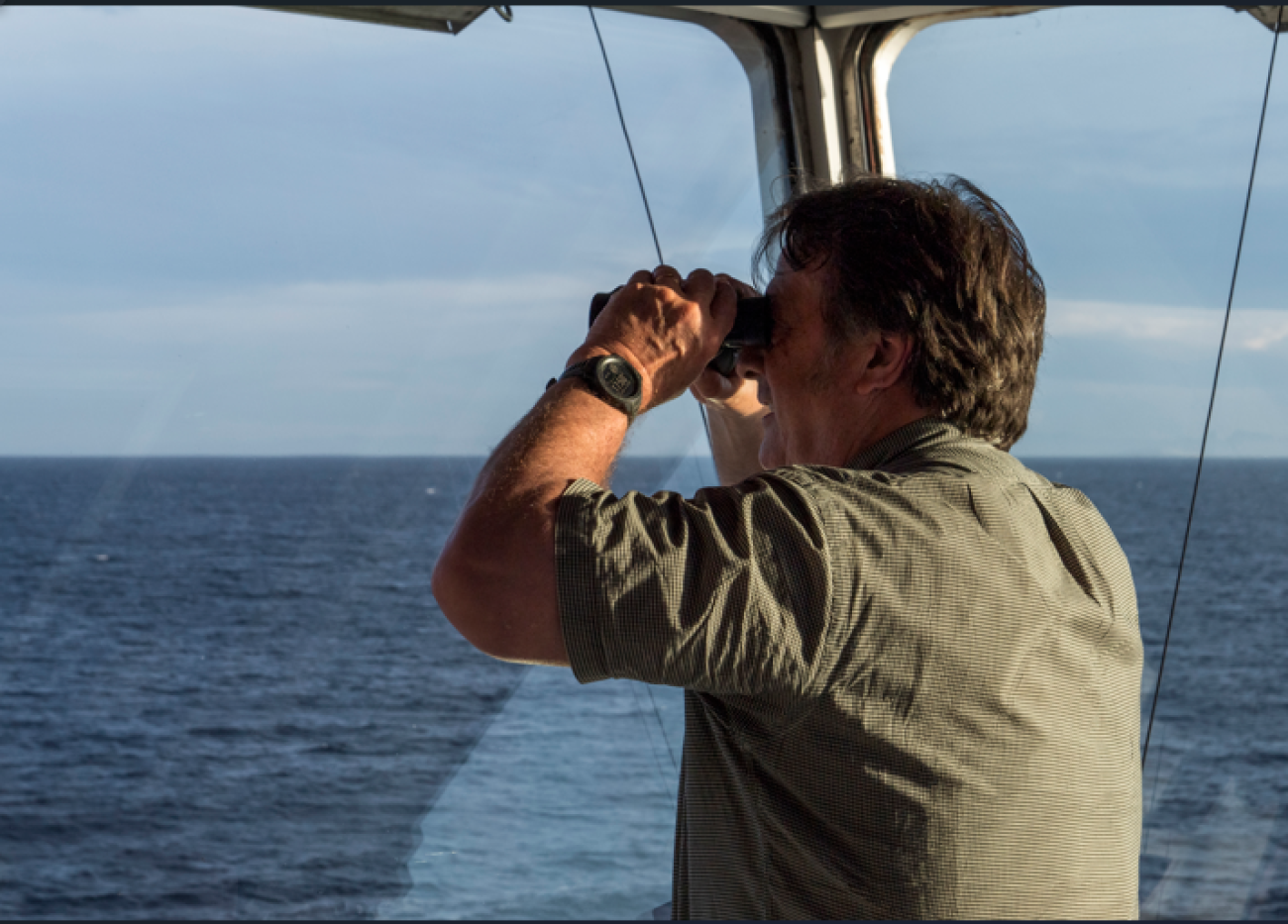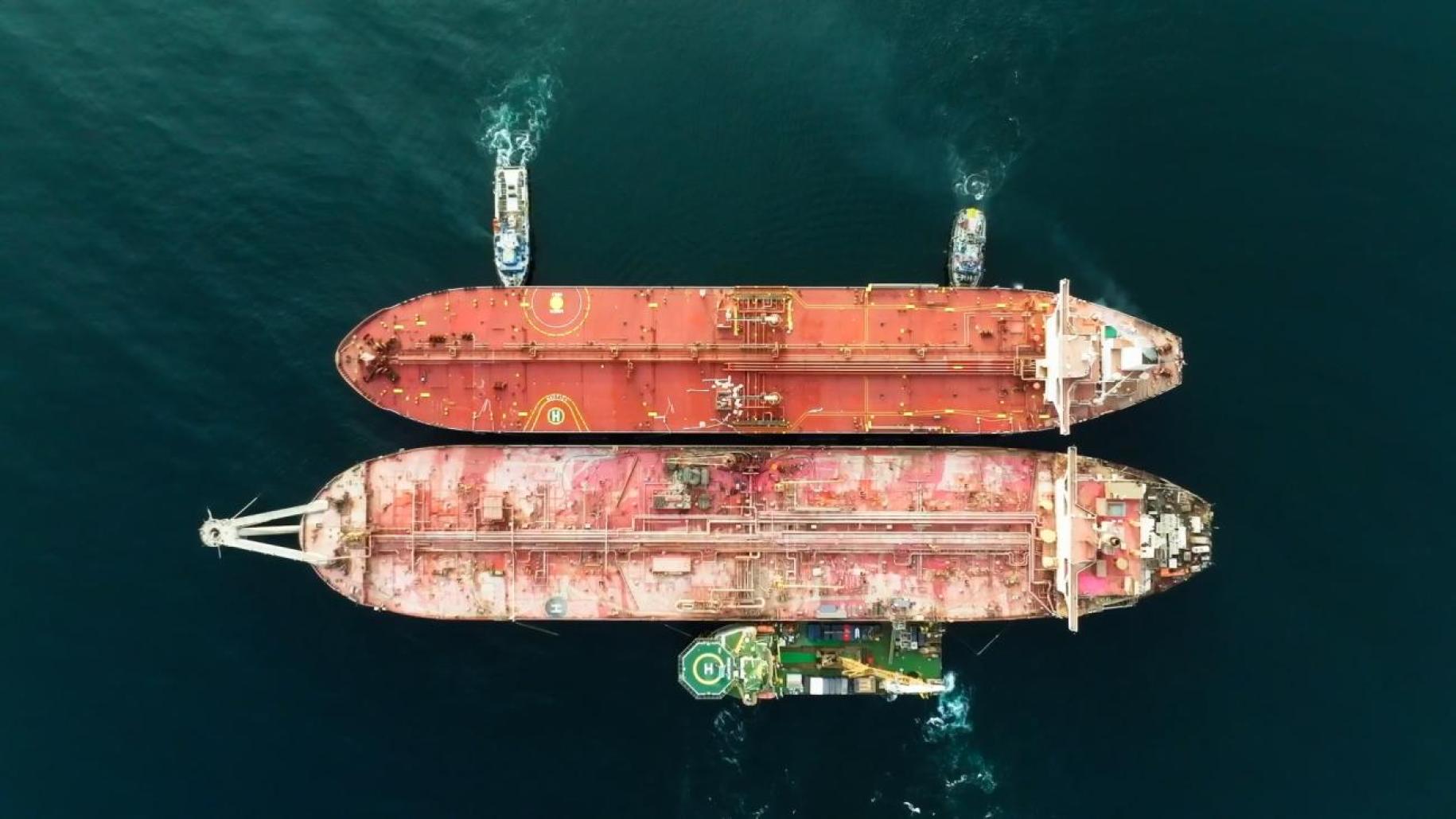Averting an environmental crisis in Yemen: “The UN can do hard things”

Preventing the immediate threat of a massive spill in the Red Sea, on August 11, the UN concluded an elaborate operation to transfer over one million barrels of crude oil from a rusting supertanker off Yemen’s coast onto a replacement vessel.
Originally constructed in 1976 as a supertanker and converted into a floating storage facility a decade later, the FSO Safer was abandoned off the coast of the Red Sea port of Hudaydah after civil war broke out in 2015. As fighting escalated, maintenance operations on the tanker were suspended and the vessel deteriorated beyond repair.
For every year that passed, the risk of the tanker breaking apart and leaking millions of barrels of oil into the surrounding areas grew more imminent.
David Gressly is the UN Resident and Humanitarian Coordinator in Yemen, and over the past two years, has been one of the loudest voices warning the world about the catastrophic consequences of such a spill. Together with UNDP and other experts on the ground, he played a key role coordinating the UN’s comprehensive plan to address it.
Speaking with the UN News days after the transfer was completed, Mr. Gressly reflects on the challenges and frustrations of coordinating such a complex operation, the relief of averting an environmental and humanitarian crisis, and how, with patience, cooperation and flexibility, the ‘UN can do hard things.’
Here are some highlights:
Bringing all the pieces together in the middle of civil war
“There was not much we knew about the tanker because it was actually difficult to get to. It was stuck in the middle of Yemen’s civil war. Getting all the parties to agree on how to manage access was not very easy to achieve.
Technically, you want to do this one very well so as not to provoke a spill, but to prevent it. We needed to get really good expertise in to do it, so we got one of the top salvage companies in the world to work on this. We needed to procure another supertanker, which we purchased in March of this year to hold the oil that was transferred off. But that took 18 months of political work to get the agreement of the parties.
Fundraising US$140 million is not an easy thing to do. Trying to get everybody to contribute that amount of money took many, many months. It was a political challenge, a security challenge, a technical challenge and a funding challenge that we had to overcome in order to get to this point. But fortunately, all those pieces did come together.”

Relief and hope for the people of Yemen
“The people of Yemen are very happy that the threat is gone. This is something that they have been worried about, regardless of which side of the frontline they're on, regardless of their affiliation with any of the parties in conflict. So, there's relief that it's finally done.
I think, secondly, there's hope that the sale of the oil, if it were to take place, could be of benefit to the people of Yemen as well. They see hope there as well. And then thirdly, of course, it creates a bit of momentum and anticipation for a celebration of the peace process itself, it creates more hope for that as well. The news, the social media that we picked up generally have been very positive and people are quite happy that finally something has been done about this.”
Sometimes, you can’t plan everything in advance
“One lesson from the whole process is that the UN can do hard things. When you take risks, that means there are challenges that are going to be hard to overcome.
I think it was very useful for all of us working on this to understand that with determination and a positive outlook, you can find solutions to very complex problems. But often what we had to do here was break everything down into smaller steps, and each step builds upon the previous one, built upon confidence and trust, to the point when it was time to do the actual transfer.
Sometimes you can't plan everything out all in advance. Sometimes you have to take it in stages and work the problem through step by step.“
To learn more about the UN's work in Yemen, please visit yemen.un.org













